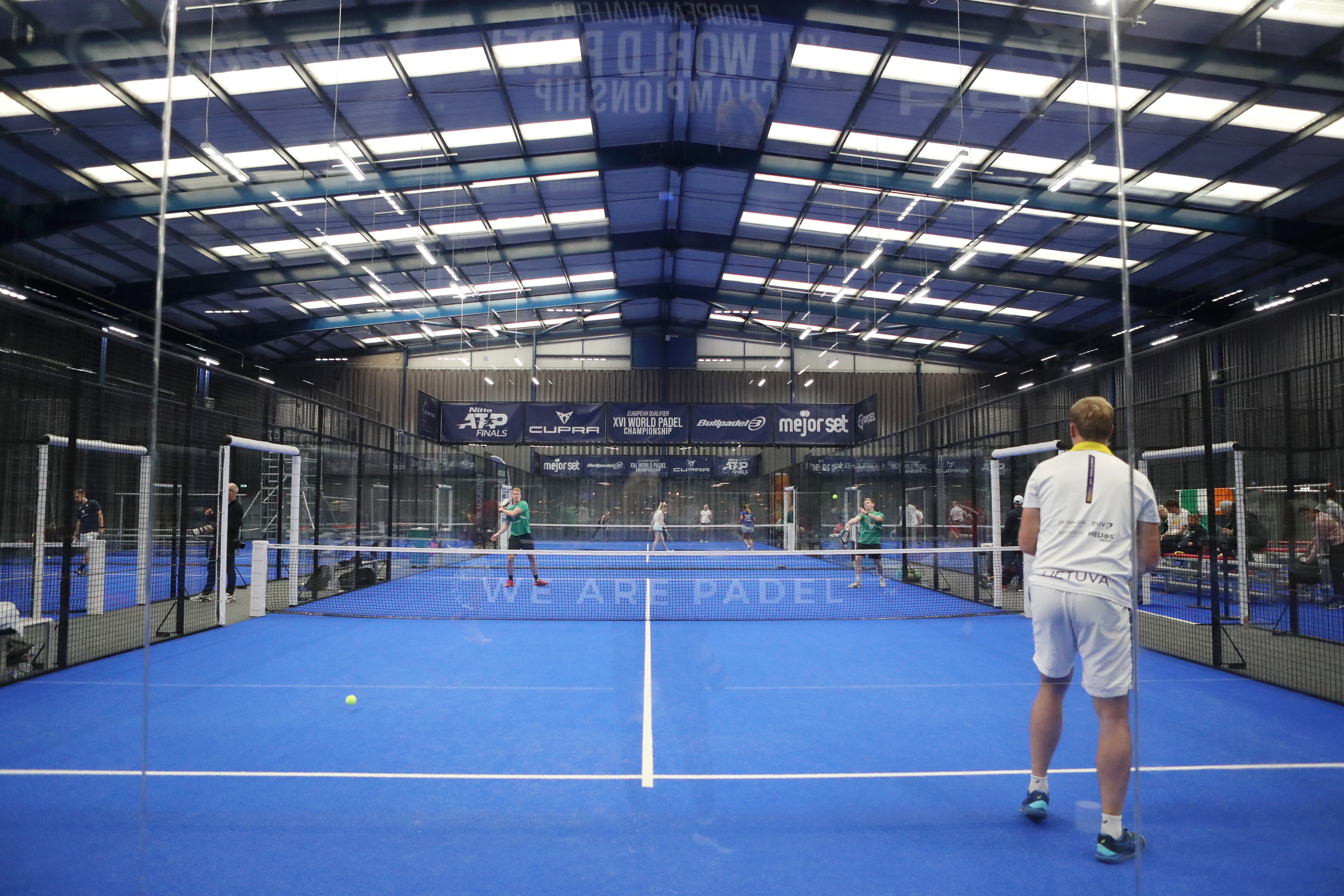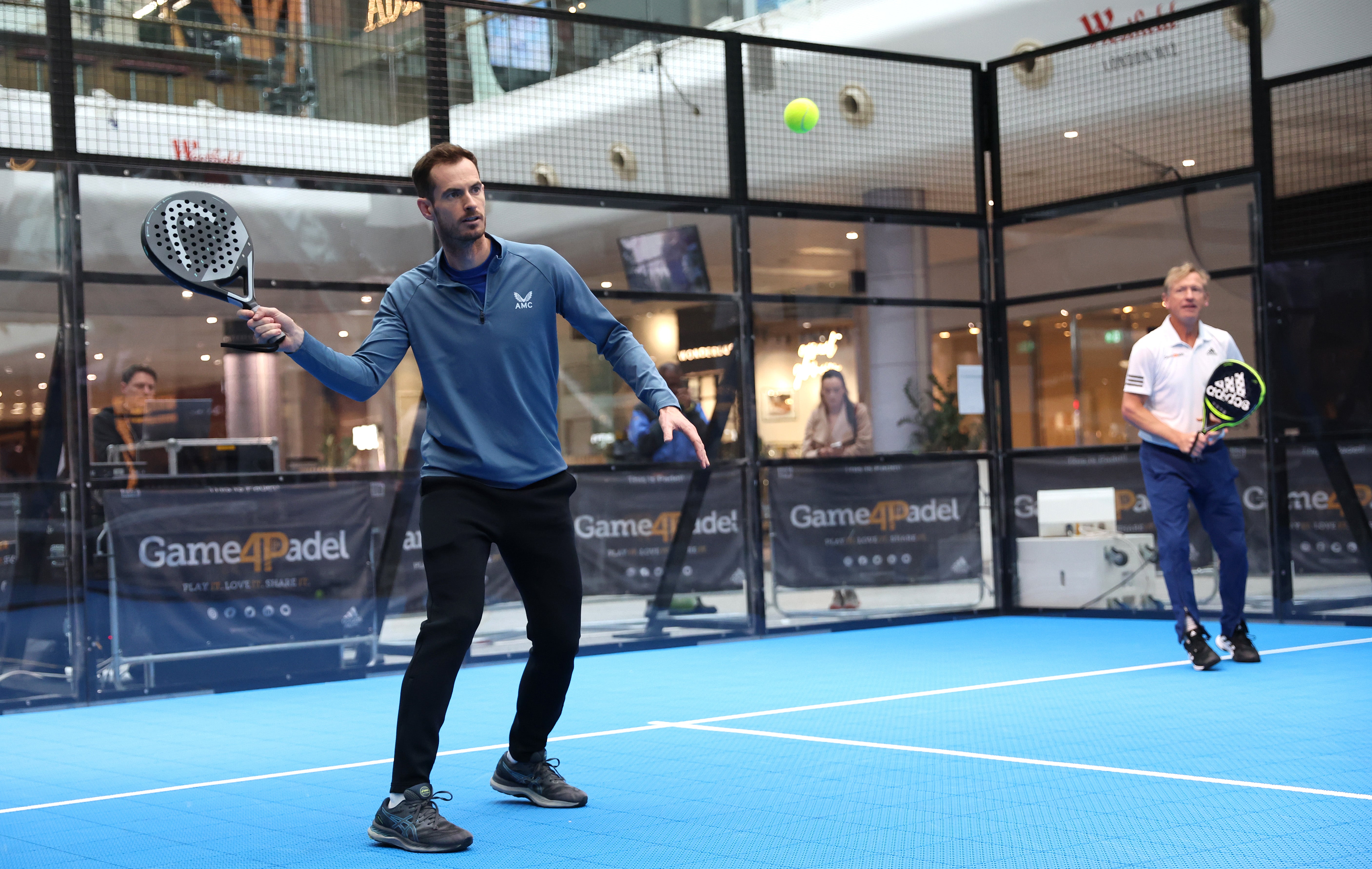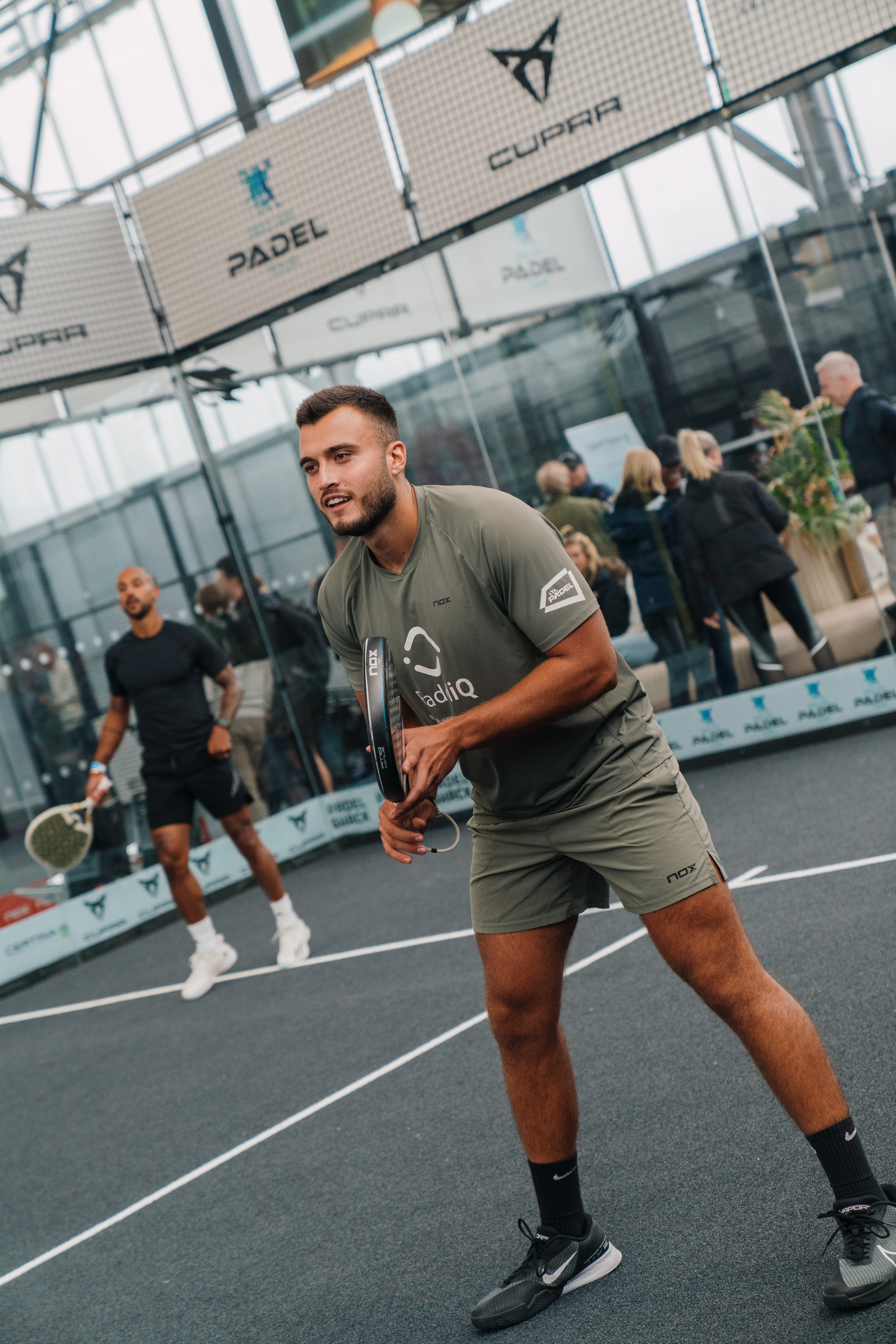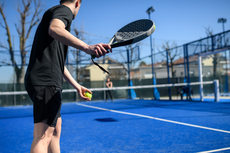Padel’s popularity booming – could it be next stop the Olympics?
Padel has become the fastest growing sport in the UK in recent years – but why? And with ambitious plans to feature in Brisbane in 2032, how much bigger can the bubble go before bursting? Kieran Jackson finds out more


If you haven’t been hit by the padel craze yet, then let me tell you: it’s on the horizon. Ahead of trendy activities such as basketball, climbing and ultimate frisbee, the sport which is played on an enclosed court and intertwines elements from tennis and squash is now the fastest-growing sport in the UK – and shows no signs of slowing down.
Annual participation is at 129,000, a massive leap from 6,000 five years ago, and the number of courts nationwide have increased from 50 in 2019 to 350 this year. The Lawn Tennis Association (LTA) has taken the sport under its orbit and announced last month a new padel strategy, with a target to have 400,000 players by 2026 and increase awareness of the sport to 40% of the population.
“Padel has become really fashionable – it’s something that everyone can play and enjoy, so it’s got that X-factor,” says Oliver Morgan, founder of the Pro Am Padel Tour and the agent for a group of Britain’s top padel players.
“It’s easy to play, but tough to master. The big question mark is whether the British public will ever fall in love with padel in the same way that the British public fall in love with tennis in the summer.
“But all the momentum is currently in one direction – it’s an upward trajectory.”
The sport’s boom is a far cry from a decade ago, when it was a game played predominantly in Latin America and Italy. Launched in the 1960s in Mexico, padel is played on a court measuring 20 metres by 10 metres, roughly a third the size of a tennis court.
While tennis and squash have options to play as singles, doubles is the norm in padel and although the scoring system is the same as tennis, the carbon-fibre rackets are smaller and the balls are slightly different.
But its unique selling point is unquestionably its easy-to-pick-up nature. Due to the glass walls surrounding the court, rallies can last a long time and its quickfire nature makes for intriguing rallies and an engrossing spectacle. It also sells itself brilliantly in the modern day - it has become the preeminent social media sport.
Points from the Premier Padel Tour, featuring players sprinting outside the court to reach hard-hitting smashes, receive millions of views on Instagram every month. It has also become a sport in tune with Generation Z, with celebrities, sports stars and influencers regularly filling their feed with the game.
What is padel?
-Padel is a racket sport that combines elements of tennis and squash. It’s always played in pairs (doubles), with a point-scoring system identical to tennis.
-The serve is underarm behind the service line, diagonally into the opponent’s service box, but cannot hit the wire fencing. The server is allowed two serves and the ball must bounce once before being hit.
-The ball can bounce a maximum of once, but can be played off the back walls or side walls.
-If the ball hits the wire fencing or wall before a bounce, it is considered out.
The recently retired Andy Murray, for instance, launched his own padel team – Ad/vantage – late last year and Lionel Messi, Robert Lewandowski and Rafael Nadal all have stakes in teams, too, in the newly formed Hexagon Cup – a new mixed-gender padel tournament featuring the world’s best players.
All in all, it simply makes you want to go and try it.
“Ten years ago, I moved to Spain from Wales to get away from the weather and then you’ve got no choice at all, you have to play padel,” says British No 3 Louie Harris.

“You play good matches frequently, and you get to test yourself at your level. In Spain, it’s very cheap, especially compared to some other sports out there. That’s still an issue here, particularly in London – everything is expensive.”
While padel’s accessibility is constantly improving – with online app Playtomic making it very simple to sign up and play competitive matches – the cost of the sport is an obvious obstacle to widespread participation. Courts are as much as £20 per player for one hour in central London, and that’s not taking into account the hire of rackets and balls.
Yet the exclusivity, in many ways, is also a point of attraction to those in their 20s, keen to meet like-minded people while staying fit. On average, a 60-minute game of padel can burn between 700 and 1,000 calories, while for squash the range is smaller - between 780 and 820 calories.

Plans are also afoot at the elite level, too, to ensure Great Britain have two players inside the top 100 in two years time. By that point, bids will be in the works for the 2032 Brisbane Olympic Games – a year padel is eyeing to make its big entrance on the grandest stage.
“My personal belief is that it fits the criteria of an Olympic sport,” Morgan says. “It has a youth aspect, from a participation level it can get really big and I think after seeing a lot of the sports which got announced [for Los Angeles 2028], it’s got a good chance.
“The LTA have actually made good steps towards improving their domestic tournament setup as well. They can only make the tournaments as big as the demand there is there. Most British players compete in international tournaments and they’re all getting better results.
“The LTA are giving the players more support, they’re starting to see more funding which means they can train at a better level more regularly. We have five full-time professional players in the UK.”
But there’s still space to grow. While its status as a social media sport is undeniable, broadcast deals in the UK are yet to materialise. Morgan adds: “The minute you put the sport on TV, it’s eyeballs, it’s commercial interest, the whole lot.”
The IOC states that new sports are decided based on “enhancing the popularity of the Games while ensuring that the number of athletes, and the cost and complexity of the event, remain manageable.”
By this definition, and given the growth and popularity which seems exponential, padel will be chomping at the bit for a spot in Brisbane. But closer to home, padel is in vogue. And if you want to know what all the fuss is about, find a court, three friends and indulge in the sport itself.
CUPRA is the proud sponsor of the Pro Am Padel Tour 2024. For more information visit www.cupraofficial.co.uk.
Join our commenting forum
Join thought-provoking conversations, follow other Independent readers and see their replies
Comments


Bookmark popover
Removed from bookmarks